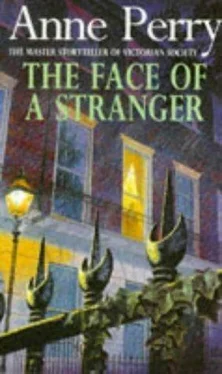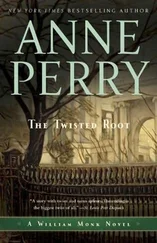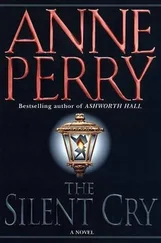Anne Perry - The Face of a Stranger
Здесь есть возможность читать онлайн «Anne Perry - The Face of a Stranger» весь текст электронной книги совершенно бесплатно (целиком полную версию без сокращений). В некоторых случаях можно слушать аудио, скачать через торрент в формате fb2 и присутствует краткое содержание. Жанр: Исторический детектив, на английском языке. Описание произведения, (предисловие) а так же отзывы посетителей доступны на портале библиотеки ЛибКат.
- Название:The Face of a Stranger
- Автор:
- Жанр:
- Год:неизвестен
- ISBN:нет данных
- Рейтинг книги:4 / 5. Голосов: 1
-
Избранное:Добавить в избранное
- Отзывы:
-
Ваша оценка:
- 80
- 1
- 2
- 3
- 4
- 5
The Face of a Stranger: краткое содержание, описание и аннотация
Предлагаем к чтению аннотацию, описание, краткое содержание или предисловие (зависит от того, что написал сам автор книги «The Face of a Stranger»). Если вы не нашли необходимую информацию о книге — напишите в комментариях, мы постараемся отыскать её.
The Face of a Stranger — читать онлайн бесплатно полную книгу (весь текст) целиком
Ниже представлен текст книги, разбитый по страницам. Система сохранения места последней прочитанной страницы, позволяет с удобством читать онлайн бесплатно книгу «The Face of a Stranger», без необходимости каждый раз заново искать на чём Вы остановились. Поставьте закладку, и сможете в любой момент перейти на страницу, на которой закончили чтение.
Интервал:
Закладка:
In the doorway Evan moved uncomfortably. Monk ignored him.
"Because I shall put it out," he replied, "that you have."
"But you ain't got no one fer yer robbery." The hoarse whisper was level again, the amusement creeping back.
"I'll find someone."
"Takes time, Mr. Monk; and 'ow are yer goin' ter do it if I don't tell yer?"
"You are leaping to conclusions, screever," Monk said ruthlessly. "It doesn't have to be the right ones; anyone will do. By the time the word gets back I have the wrong people, it'll be too late to save your fingers. Broken fingers heal hard, and they ache for years, so I'm told."
The man called him something obscene.
"Quite." Monk looked at him with disgust. "So who paid you?"
The man glared at him, hate hot in his face.
"Who paid you?" Monk leaned forward a little.
"Josiah Wigtight, moneylender," the man spat out. "Find 'im in Gun Lane, Whitechapel. Now get out!"
"Moneylender. What sort of people does he lend money to?"
"The sort o' people wot can pay 'im back, o' course, fool!"
"Thank you." Monk smiled and straightened up. "Thank you, screever; your business is secure. You have told us nothing."
The screever swore at him again, but Monk was out of the door and hurrying down the rickety stairs, Evan, anxious and doubtful, at his heel, but Monk offered him no explanation, and did not meet his questioning look.
It was too late to try the moneylender that day, and all he could think of was to get out of the rookeries in one piece before someone stabbed one of them for his clothes, poor as they were, or merely because they were strangers.
He said good-night briefly and watched Evan hesitate, then reply in his quiet voice and turn away in the darkness, an elegant figure, oddly young in the gaslight.
Back at Mrs. Worley's, he ate a hot meal, grateful for it, at once savoring each mouthful and hating it because he could not dismiss from his mind all those who would count it victory merely to have survived the day and eaten enough to sustain life.
None of it was strange to him, as it obviously had been to Evan. He must have been to such places many times before. He had behaved instinctively, altering his stance, knowing how to melt into the background, not to look like a stranger, least of all a figure of authority. The beggars, the sick, the hopeless moved him to excruciating pity, and a deep, abiding anger-but no surprise.
And his mercilessness with the screever had come without calculation, his natural reaction. He knew the rookeries and their denizens. He might even have survived in them himself.
Only afterwards, when the plate was empty, did he lean back in the chair and think of the case.
A moneylender made sense. Joscelin Grey might well have borrowed money when he lost his small possessions in the affair with Latterly, and his family would not help. Had the moneylender meant to injure him a little, to frighten repayment from him, and warn other tardy borrowers, and when Grey had fought back it had gone too far? It was possible. And Yeats's visitor had been a moneylender's ruffian. Yeats and Grimwade had both said he was a big man, lean and strong, as far as they could tell under his clothes.
What a baptism for Evan. He had said nothing about it afterwards. He had not even asked if Monk would really have arrested people he knew to be innocent and then spread the word the screever had betrayed them.
Monk flinched as he remembered what he had said; but it had simply been what instinct directed. It was a streak of ruthlessness in himself he had been unaware of; and it would have shocked him in anyone else. Was that really what he was like? Surely it was only a threat, and he would never have carried it out? Or would he? He remembered the anger that had welled up inside him at the mention of moneylenders, parasites of the desperate poor who clung to respectability, to a few precious standards. Sometimes a man's honesty was his only real possession, his only source of pride and identity in the anonymous, wretched, teeming multitude.
What had Evan thought of him? He cared; it was a miserable thought that Evan would be disillusioned, finding his methods as ugly as the crime he fought, not understanding he was using words, only words.
Or did Evan know him better than he knew himself? Evan would know his past. Perhaps in the past the words had been a warning, and reality had followed.
And what would Imogen Latterly have felt? It was a preposterous dream. The rookeries were as foreign to her as the planets in the sky. She would be sick, disgusted even to see them, let alone to have passed through them and dealt with their occupants. If she had seen him threaten the screever, standing in the filthy room, she would not permit him to enter her house again.
He sat staring up at the ceiling, full of anger and pain. It was cold comfort to him that tomorrow he would find the usurer who might have killed Joscelin Grey. He hated the world he had to deal with; he wanted to belong to the clean, gracious world where he could speak as an equal with people like the Latterlys; Charles would not patronize him, he could converse with Imogen Latterly as a friend, and quarrel with Hester without the hindrance of social inferiority. That would be a delicate pleasure. He would dearly like to put that opinionated young woman in her place.
But purely because he hated the rookeries so fiercely, he could not ignore them. He had seen them, known their squalor and their desperation, and they would not go away.
Well at least he could turn his anger to some purpose; he would find the violent, greedy man who had paid to have Joscelin Grey beaten to death. Then he could face Grey in peace in his imagination-and Runcorn would be defeated.
10
Monk sent Evan to try pawnshops for the pink jade, and then himself went to look for Josiah Wigtight. He had no trouble finding the address. It was half a mile east of Whitechapel off the Mile End Road. The building was narrow and almost lost between a seedy lawyer's office and a sweatshop where in dim light and heavy, breathless air women worked eighteen hours a day sewing shirts for a handful of pence. Some felt driven to walk the street at night also, for the extra dreadfully and easily earned silver coins that meant food and rent. A few were wives or daughters of the poor, the drunken or the inadequate; many were women who had in the past been in domestic service, and had lost their "character" one way or another-for impertinence, dishonesty, loose morals, or because a mistress found them "uppity," or a master had taken advantage of them and been discovered, and in a number of cases they had become with child, and thus not only unemployable but a disgrace and an affront.
Inside, the office was dim behind drawn blinds and smelled of polish, dust and ancient leather. A black-dressed clerk sat at a high stool in the first room. He looked up as Monk came in.
"Good morning, sir; may we be of assistance to you?"
His voice was soft, like mud. "Perhaps you have a little problem?" He rubbed his hands together as though the cold bothered him, although it was summer. "A temporary problem, of course?" He smiled at his own hypocrisy.
"I hope so." Monk smiled back.
The man was skilled at his job. He regarded Monk with caution. His expression had not the nervousness he was accustomed to; if anything it was a little wolfish. Monk realized he had been clumsy. Surely in the past he must have been more skilled, more attuned to the nuances of judgment?
"That rather depends on you," he added to encourage the man, and allay any suspicion he might unwittingly have aroused.
"Indeed," the clerk agreed. "That's what we're in business for: to help gentlemen with a temporary embarrassment of funds. Of course there are conditions, you understand?" He fished out a clean sheet of paper and held his pen ready. "If I could just have the details, sir?"
Читать дальшеИнтервал:
Закладка:
Похожие книги на «The Face of a Stranger»
Представляем Вашему вниманию похожие книги на «The Face of a Stranger» списком для выбора. Мы отобрали схожую по названию и смыслу литературу в надежде предоставить читателям больше вариантов отыскать новые, интересные, ещё непрочитанные произведения.
Обсуждение, отзывы о книге «The Face of a Stranger» и просто собственные мнения читателей. Оставьте ваши комментарии, напишите, что Вы думаете о произведении, его смысле или главных героях. Укажите что конкретно понравилось, а что нет, и почему Вы так считаете.












